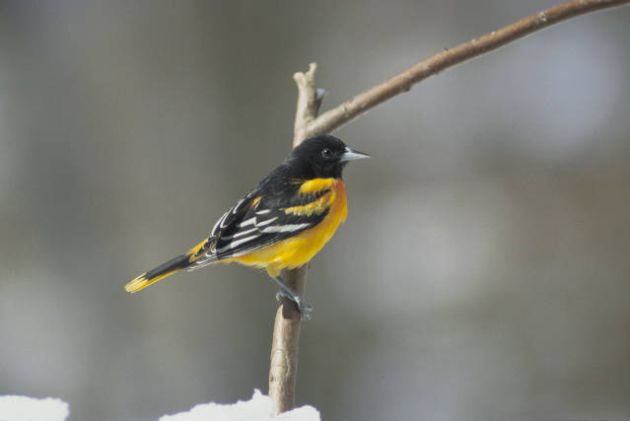
I can’t possibly remember when the Baltimore and Bullock’s Orioles were lumped into Northern Oriole. This happened in a good five years before I was born, and although I am in fact a super-genius, I haven’t quite got time-travel on that level down. But I grew up with old field guides and a mother who was disgusted by the fact that we’d swapped two cool birds with two reasonably-cool names for one bird with one, very uninspiring name. I felt like the injustice was fresh, and that I, personally, had been robbed of the Baltimore Oriole. When, in my junior year of high school, this wrong was righted, I was very pleased.
You’ll note that I felt robbed of the Baltimore Oriole. Not so much of the Bullock’s, because everything outside of New York, and especially everything in the vague space in my mind labelled “Out West” – past, say, Cleveland Ohio, a land of Scissor-tailed Flycatchers, California Condors, Lazuli Buntings, and Green Jays, all equally impossibly exotic – might as well have been Phoenicia. It was not mine, and I couldn’t miss what I had never had. Moving to Montana was not even exotic – it was a non-possibility.
Of course, then life got bigger and a lot of possibilities opened up. But I was, perhaps, slow to see them. I didn’t go to grad school or move to Montana until my 30s, and I didn’t see the Bullock’s Oriole until I had been in Montana almost four years. I was caught up in a world of magpies and Golden Eagles and sadly-still-lumped Northern Flickers with luminous red underwings, of American Dippers and Western Tanagers and winter visits from Barrow’s Goldeneye. And yes, I was also writing a thesis, and then a novel, and maybe not getting out as much as I should (I never get out as much as I should.)
But there’s a line I once read, unfortunately without remembering the source – “If you live long enough, the birds come to you.” Wise words, whoever you were. Because sometimes a Bullock’s Oriole just flies over your head, on a day when you’re only vaguely expecting any such thing, and then perches at the tip of a pathside tree and starts singing.
Images courtesy of the US Fish and Wildlife Service. America!


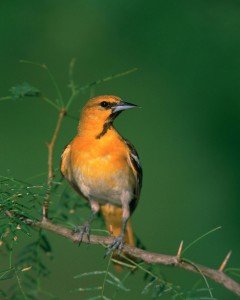




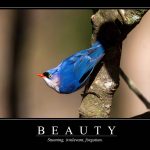
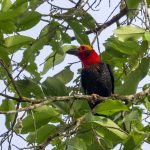
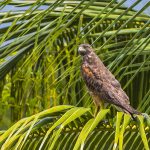
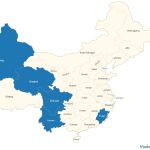
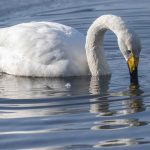
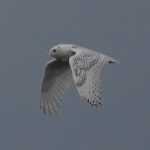
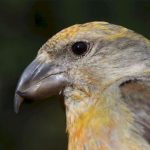
Lovely writing, Carrie!
While I am not entirely sure how long i’ll have to live for a wild Emperor Penguin to make it to Heidelberg, I fully subscribe to the connection between the time spent birding and the birds that come one’s way. Passion & Patience.